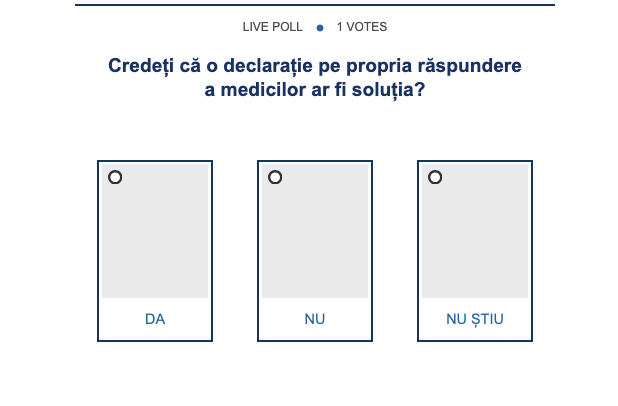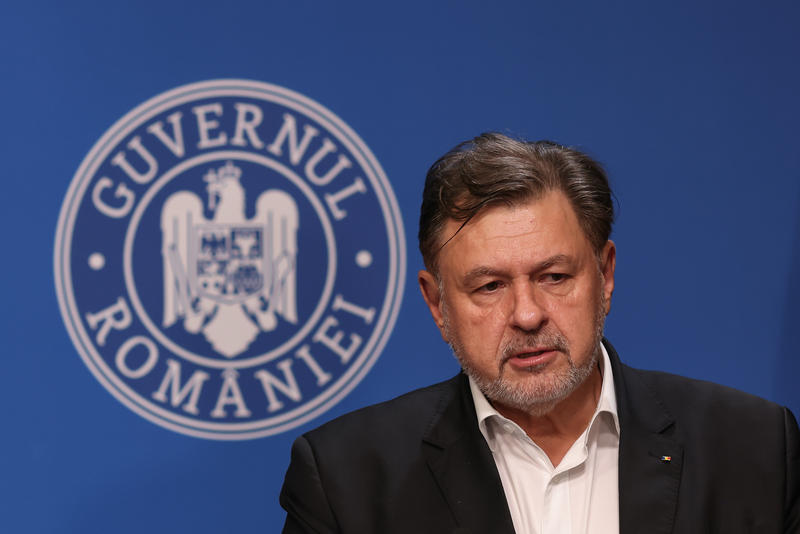The Constitutional Court of Romania (CCR) on Tuesday declared unconstitutional a series of provisions of the controversial Law on Judicial Organization, which passed through Parliament late last year. It also decided to postpone the debate on the other two disputed pieces of justice legislation which sparked public outcry over the past several months, namely the Statute of Magistrates and the Organization of the Superior Council of Magistrates, for January 30, according to News.ro news agency. In the case of the Law decided upon today, the CCR considered that a key provision which caused a lot of criticism, the establishment of a special body to investigate magistrates, was constitutional.
Valeriu Dorneanu, the President of the CCR, stated that, more specifically, four objections to law on the judicial organization were accepted by the Court. He also mentioned that the proposal to set up a special section for investigating magistrates is part of the texts rejected by the Court, meaning that it was seen as constitutional.
Valer Dorneanu has exemplified that one of the objections admitted by the Court concerns the employment of retired magistrates.
On the agenda of the CCR on Tuesday session was the objection of unconstitutionality of the Law for amending and completing the Law no. 303/2004 on the status of judges and prosecutors, formulated by the High Court of Cassation and Justice 3, the objection of the unconstitutionality of the Law for the modification and completion of the Law no.304 / 2004 regarding the judicial organization, objection formulated by 29 Liberal (opposition) senators, The objection of unconstitutionality of the Law for amending and completing the Law no. 303/2004 on the status of judges and prosecutors, formulated by 56 Liberal Deputies, The objection of unconstitutionality of the Law for amending and completing the Law no.304 / 2004 regarding the judicial organization and the Law for amending and completing the Law no.317 / 2004 on the organization and the functioning of the Superior Council of Magistracy, formulated by the High Court of Cassation and Justice, The objection of unconstitutionality of the Law amending and completing the Law no.304 / 2004 on the judicial organization and the Law amending and supplementing the Law no.317 / 2004 on the organization and functioning of the Superior Council of Magistracy, formulated by the High Court of Cassation and Justice and the Objection of the Unconstitutionality of the Law amending and completing the Law no.317 / 2004 on the organization and functioning of the Superior Council of Magistracy, objection formulated by 52 Liberal MPs.
On December 29, 2017, the High Court of Cassation and Justice (ICCJ) reported to the Constitutional Court that eight articles in the Constitution were violated by Parliament's amendments to the law on the organization of courts and prosecutor's offices and the law on the organization and functioning of the CSM.
The first referral by ICCJ refers to the Magistrates' Statute. The document is signed by 89 magistrates who say that the amendments voted by the Parliament violate 14 articles in the Constitution.
Another referral concerns the establishment of the Special Prosecutor's Office for the Investigation of Judges and Prosecutors, ICCJ arguing that the principle of equality before the law was breached, as magistrates would become the only professional category in Romania with a dedicated prosecutor's office. A serious violation of the Constitution is considered to be the election of the CSM president only by the vote of the elected judges in the Council and the vice-president only by the prosecutors members.
The ICCJ also considers that the verification by the secret services parliamentary committees of the statements made by the magistrates elected in the CSM, according to which they are not undercover officers or collaborators, violates the separation of powers in the state.
General Prosecutor Augustin Lazar said he was convinced that the judges of the Constitutional Court would give a "historical" decision on the allegations regarding the amendment of the laws of Justice.
"The Public Ministry is still very attentive, it follows with great care the procedure for verifying the constitutionality of these laws. We have at the disposal of the competent institutions all the suspicions of unconstitutionality we have had and we are convinced that a decision will be made by The Constitutional Court, one that will be a reference, no doubt a historic decision I think it will be, and the Constitutional Court believes it will give a wise solution in a case that is in the attention of the Romanian public opinion, "Augustin Lazar said, at the entrance to the meeting of the Superior Council of Magistracy.
Also, President Klaus Iohannis said at the CSM's first session this year that he has hope and confidence that the CCR will judiciously judge the allegations of changes to the laws of justice, the head of state saying that these changes were adopted through a blunt procedure , ad-hoc, with "the fist in the mouth of the opposition" and under the pressure of time.
Monday, opposition party USR announced that he filed an appeal with the Constitutional Court on the three laws of justice, with party leader Dan Barna, saying USR lawyers have discovered other reasons for unconstitutionality over those already identified by the ICCJ and the PNL.




















